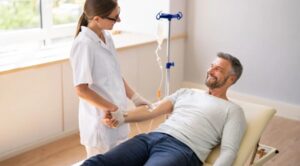
Taking care of oneself is one of the most important aspects of sobriety. In actuality, self-care entails actions like attending therapy sessions and adhering to a rehabilitation schedule. It’s possible that neglecting to look after your physical, emotional, mental, spiritual, and logistical needs hastens the collapse of your life, which you ascribe to drug abuse. Your ability to handle the ups and downs of life with grace and respect may be improved by restoring your wellbeing and health. Any effort to enhance one’s physical and mental health is referred to as self-care. Contrary to popular belief, self-care is not all about massages and bubble baths. It is simpler than that. Not everything should be expensive.
Most people do not adequately care for themselves, even if they do not have an issue with substance abuse. People who often skip meals in order to accomplish more work are disregarding their personal hygiene and health. For those beginning addiction recovery, self-neglect is considerably worse than just missing meals. Providing for an addict’s desires is one of the most urgent problems associated with drug abuse. Food, drink, medical care, and counseling are not always given first priority. You could overlook facets of your life crucial to your joy, such as financial stability and deep connections. By looking for yourself, you could start to undo your dependence’s harm. It’s an exercise that promotes healthy behaviors and improves wellbeing.
Self-Care: Some Suggestions
In therapy sessions and support groups, the initials H.A.L.T., which stand for “hungry,” “angry,” “lonely,” and “tired,” are often employed. Many individuals once again resort to drug misuse to combat the impact of these gloomy feelings. Regular self-care increases resilience in the face of challenges and aids in issue prevention. Here are self-care aspects you should prioritize right away if you intend to improve your chances of a complete recovery.
- Workout
Regular exercise boosts your physical health as well as your overall health. It is impossible to underestimate the benefits of regular exercise in reducing stress and avoiding relapse.
- Eating healthily
Eat healthfully to provide the energy your mind and body need. Eating a balanced, nutritious diet has several advantages, including improving concentration and providing long-lasting energy. It also helps in mental well-being. A healthy meal makes you feel better, and you’re less likely to abuse hazardous drugs when you are feeling well.
- Reduce your life’s stress.
Stress is a common trigger for relapse, but it may be reduced with frequent self-care. The most efficient techniques for reducing stress include regular exercise, sleep, and meditation.
- Make sure you are receiving enough sleep.
The effects of sleep deprivation are extensive, ranging from negative emotions and poor energy to hampered cognitive performance and even despair. It’s challenging to exert the mental effort required for a quick recovery when you’re exhausted.
- Enjoy yourself and relax every day.
Finding new ways to relax and have fun without using drugs or alcohol is essential to your recovery. Fill your time with engaging pursuits and pastimes to promote enjoyment and relaxation and reduce stress without turning to drugs or alcohol.
Quality Help Is Available at Taylor Recovery Center in Dallas
Taylor Recovery Center in Dallas offers compassionate, non-judgmental treatment to people who need help sustaining their recovery or are initially seeking recovery. Please contact us as soon as possible. Visit our website to learn more about the services we provide at Taylor Recovery Center.





